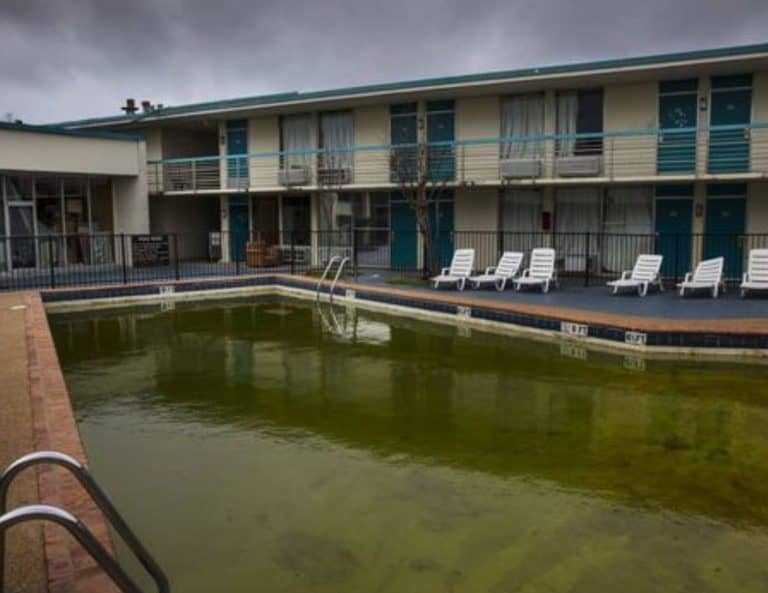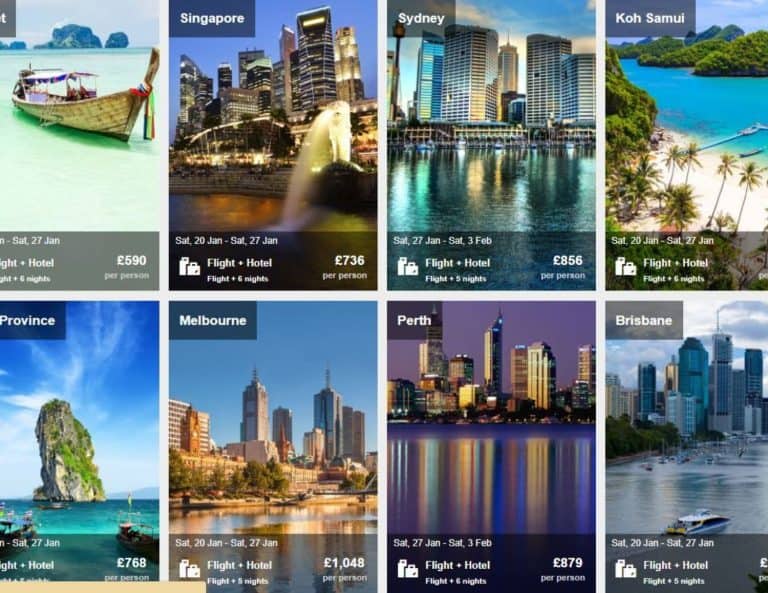Finding suitable accommodation for an extended stay can be a challenge, but staying in a hotel for more than 30 days can be a convenient and comfortable option. Whether you’re traveling for work, relocating, or simply need a temporary place to stay, hotels offer a range of amenities and services that can make your long-term stay enjoyable.
If you’re short on time, here’s a quick answer to your question: Yes, you can stay in a hotel for more than 30 days. In this article, we will explore the benefits of long-term hotel accommodation, the options available, and tips for making the most of your extended stay.
Benefits of Long-Term Hotel Accommodation
Comfort and Convenience
Choosing a long-term hotel accommodation offers a level of comfort and convenience that is hard to beat. Unlike traditional apartment rentals, hotels are designed to provide a comfortable and hassle-free stay. You don’t have to worry about maintenance issues or repairs – the hotel staff takes care of everything. Plus, you can enjoy daily housekeeping services, ensuring that your living space remains clean and tidy throughout your stay. Whether you’re traveling for work or leisure, staying in a hotel for more than 30 days allows you to relax and focus on your activities without the usual responsibilities of maintaining a home.
Amenities and Services
One of the major advantages of long-term hotel accommodation is the wide range of amenities and services available to guests. Hotels often offer luxurious amenities such as swimming pools, fitness centers, spa facilities, and on-site restaurants. These amenities provide opportunities for relaxation and recreation, allowing you to make the most of your stay. Additionally, hotels typically offer services like 24-hour front desk assistance, room service, and laundry facilities, making your daily routine more convenient. Some hotels even provide complimentary breakfast or social events for long-term guests, creating a sense of community and enhancing your overall experience.
Flexibility and Freedom
Staying in a hotel for more than 30 days offers a level of flexibility and freedom that is ideal for individuals who are constantly on the move. Unlike a fixed lease agreement with an apartment, hotels allow you to extend or shorten your stay based on your needs. This flexibility is especially beneficial for business travelers or those who are uncertain about the duration of their stay. Moreover, long-term hotel accommodation provides the freedom to explore different locations without the commitment of a long-term rental contract. You can easily switch hotels or move to a different city, giving you the opportunity to experience new surroundings and cultures.
Types of Long-Term Hotel Accommodation
Extended Stay Hotels
Extended stay hotels are specifically designed for guests who need accommodation for an extended period, typically more than 30 days. These hotels offer a comfortable and convenient experience for long-term stays, providing amenities such as fully equipped kitchens, laundry facilities, and separate living areas. Some extended stay hotels also offer complimentary breakfast and evening socials, creating a more homely atmosphere for guests. These hotels are a popular choice for business travelers, families, and those in the process of relocating.
Serviced Apartments
Serviced apartments are another excellent option for long-term hotel accommodation. These apartments are fully furnished and equipped with all the necessary amenities, including a kitchen, living area, and bedroom. The convenience of having a self-contained unit allows guests to prepare their meals and have a more independent experience. Serviced apartments often provide additional services such as housekeeping, concierge, and fitness facilities, making it a great choice for both business and leisure travelers.
Corporate Housing
Corporate housing is a specialized type of long-term accommodation that caters primarily to business travelers. These accommodations are typically fully furnished apartments, condos, or houses provided by a company for their employees. Corporate housing offers a high level of comfort and convenience, with amenities similar to serviced apartments. It provides a sense of home away from home, making it suitable for extended business trips or relocations. Corporate housing is often located in close proximity to business centers and transportation hubs, ensuring easy access to work and other amenities.
When choosing the right type of long-term hotel accommodation, it is essential to consider your specific needs and preferences. Extended stay hotels, serviced apartments, and corporate housing all offer unique advantages, so take the time to research and compare the options available to find the best fit for your long-term stay.
Factors to Consider When Choosing a Hotel for an Extended Stay
When planning a long-term stay at a hotel, there are several important factors to consider before making your reservation. Taking the time to evaluate these factors will ensure that you have a comfortable and enjoyable experience throughout your extended stay.
Location and Accessibility
The location of the hotel is a crucial factor to consider when planning a long-term stay. It’s important to choose a hotel that is conveniently located near the places you will frequent the most, such as your workplace, grocery stores, and other amenities. Additionally, consider the accessibility of transportation options in the area. Are there reliable public transportation services or nearby taxi stands? These factors will greatly impact your convenience and ease of travel during your extended stay.
Price and Value for Money
Price is another important consideration when choosing a hotel for an extended stay. While it may be tempting to opt for the cheapest option available, it’s essential to balance price with value for money. Look for hotels that offer long-term stay discounts or packages, as these can significantly reduce your overall cost. Additionally, consider the amenities and services included in the price, such as complimentary breakfast, access to a gym or pool, and free Wi-Fi. These amenities can greatly enhance your experience and provide excellent value for your money.
Reviews and Reputation
Before booking a hotel for an extended stay, it’s crucial to research the hotel’s reviews and reputation. Reading reviews from previous guests can provide valuable insights into the quality of service, cleanliness, and overall experience at the hotel. Websites such as TripAdvisor, Booking.com, and Yelp are great resources for finding reliable reviews. Pay close attention to any recurring issues mentioned in the reviews, as they may indicate potential problems during your long-term stay. Additionally, consider the hotel’s reputation within the industry and its track record of providing exceptional service to guests.
Booking and Negotiating Long-Term Hotel Rates
When it comes to booking long-term hotel accommodation, there are several strategies you can employ to secure the best rates. In this section, we will explore three popular methods: contacting the hotel directly, using online travel agencies, and negotiating rates.
Contacting the Hotel Directly
One option for securing long-term hotel rates is to contact the hotel directly. By speaking with the hotel’s reservation team, you can inquire about any special rates or discounts they offer for extended stays. It’s important to clearly communicate your intention to stay for more than 30 days, as many hotels have separate pricing structures for short-term and long-term guests. Additionally, don’t hesitate to ask if there are any perks or amenities that come with an extended stay, such as complimentary breakfast or access to the hotel’s fitness center.
Using Online Travel Agencies
Another avenue to explore is using online travel agencies (OTAs) to book your long-term hotel accommodation. OTAs like Expedia, Booking.com, and Hotels.com often have special rates and deals for extended stays. These platforms allow you to compare prices across multiple hotels, read reviews from other guests, and even filter your search based on specific amenities or location preferences. Additionally, some OTAs offer loyalty programs that can provide further discounts or benefits for repeat customers. Keep in mind that while OTAs can be a convenient option, it’s still worth contacting the hotel directly to see if they can match or beat the rates offered online.
Negotiating Rates
If you are comfortable with negotiation, you may want to try your hand at securing a better rate directly with the hotel. This approach is more effective when you are booking a long-term stay, as hotels are often willing to negotiate to ensure a steady and guaranteed occupancy. Start by researching the average rates for similar hotels in the area and use that information as leverage during your negotiation. Be polite, but firm, and emphasize the length of your stay and the potential for a mutually beneficial partnership. Remember, hotels are businesses and want to fill their rooms, so don’t be afraid to negotiate for a rate that suits your budget.
It’s worth mentioning that the success of negotiation may vary depending on factors such as location, demand, and the hotel’s occupancy rate. Some hotels may have strict policies and fixed rates for long-term stays, while others may be more flexible. It’s always a good idea to be prepared with alternative options in case your negotiation doesn’t yield the desired result.
By exploring these methods – contacting the hotel directly, using online travel agencies, and negotiating rates – you can increase your chances of securing a favorable long-term hotel accommodation rate. Remember to do your research, be polite but assertive, and don’t be afraid to explore different avenues to find the best deal for your extended stay.
Tips for a Comfortable and Productive Extended Stay
Pack Essentials and Personalize Your Space
When staying in a hotel for an extended period, it’s important to pack the essentials that will make your stay more comfortable. Consider bringing items such as a travel-sized toiletry kit, a small first aid kit, and a power strip for all your electronic devices. Additionally, personalize your space by bringing items that make you feel more at home, such as family photos, your favorite pillow, or a cozy blanket.
For more tips on packing for a long-term hotel stay, check out this helpful article from Travel + Leisure.
Maintain a Routine and Stay Active
One of the challenges of staying in a hotel for an extended period is maintaining a routine. It’s easy to fall into a slump and lose productivity. To combat this, create a daily schedule and stick to it. Set specific times for work, exercise, meals, and relaxation. This will help you stay organized and focused.
Additionally, staying active is crucial for your physical and mental well-being. Most hotels have fitness centers or offer access to nearby gyms. Take advantage of these facilities and incorporate regular exercise into your routine. If you prefer outdoor activities, explore the local area and find nearby parks or trails for walking, running, or cycling.
To learn more about the benefits of exercise during an extended hotel stay, read this informative article from the Mayo Clinic.
Connect with the Local Community
While staying in a hotel, it’s important to connect with the local community to make your stay more enjoyable and memorable. Research local events, festivals, or cultural activities happening during your stay and make an effort to attend. This will not only provide you with entertainment but also give you a chance to meet new people and learn about the local culture.
Another way to connect with the community is by exploring local restaurants, cafes, and shops. Try out the local cuisine, strike up conversations with the locals, and ask for recommendations on places to visit. This will give you a sense of belonging and help you create meaningful connections.
To find local events and activities, websites like Eventbrite or TripAdvisor can be great resources.
Conclusion
Staying in a hotel for more than 30 days can provide the comfort, convenience, and flexibility you need for an extended stay. By considering the benefits of long-term hotel accommodation, exploring the various options available, and taking into account factors such as location, price, and reviews, you can find the perfect hotel for your needs.
Remember to book in advance and negotiate rates if necessary, and make your extended stay more enjoyable by personalizing your space, maintaining a routine, and connecting with the local community. Whether you’re traveling for business or pleasure, a long-term hotel stay can offer all the comforts of home without the commitment of a long-term lease. So why not consider a hotel for your next extended stay?






